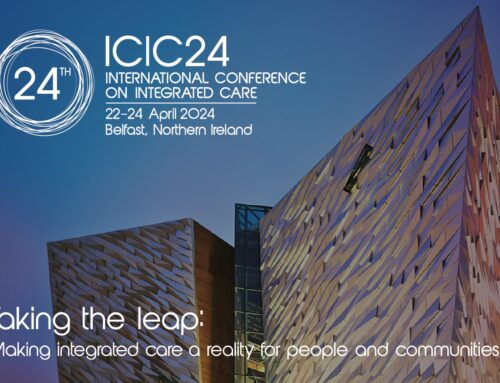The EIIMPROVE project, aimed at patients with Inflammatory Bowel Disease, will make it possible to implement measurement systems, to organize healthcare practice around clinical processes or conditions, and to calculate the costs per patient during their care.
It is estimated that in Spain between 84,000 and 120,000 people are affected by Inflammatory Bowel Disease (IBD), whose average age of diagnosis is around 30 years. This disease has a clear impact on quality of life, due to its chronicity, the high percentage of surgeries associated with it and the great social and economic repercussions it has on the system[i]. IBD includes two disorders, Crohn’s disease and ulcerative colitis, which are associated in Spain with direct costs of around 580 million euros.
 Twelve Spanish hospitals are participating in the EIIMPROVE project, which aims to incorporate international standards for the management of patients with this pathology by measuring health outcomes in routine clinical practice in a systematic and prolonged manner. Thus, over the next twelve months, they will comparatively analyze the results in the clinical practice of patients with IBD, in order to improve the care they receive.
Twelve Spanish hospitals are participating in the EIIMPROVE project, which aims to incorporate international standards for the management of patients with this pathology by measuring health outcomes in routine clinical practice in a systematic and prolonged manner. Thus, over the next twelve months, they will comparatively analyze the results in the clinical practice of patients with IBD, in order to improve the care they receive.
EIIMPROVE is coordinated by Kronikgune, the Spanish Working Group on Crohn’s Disease and Ulcerative Colitis (GETECCU), and the consulting firm IQVIA, and is sponsored by Vifor Pharma. The main objective of the project is to facilitate the incorporation into the clinical practice of hospitals the systematic measurement of health value outcomes in patients with IBD, to carry out a comparative evaluation between centers and to exchange good practices among the participating hospitals.
Value-based healthcare (VBHC) is a model based on implementing measurement systems, organizing care practice around clinical processes or conditions, and calculating costs per patient. The implementation of these three components requires moving from a fragmented model, such as the current one, which uses payment by activity and volume, to a model focused on value and on the patient in a comprehensive and integrated manner.
The study will measure the health outcomes of patients with IBD using the variables defined by the International Consortium for Health Outcomes Measurement (ICHOM), grouped into four major blocks:
1) disease control and survival (anemia, disease remission or activity, colorectal cancer, overall or cause-specific survival);
2) symptoms, functional capacity and quality of life (change in bowel symptoms, normal activities, energy and fatigue, weight);
3) disutility of care (complications in interventions, steroid use); and
4) resource consumption (hospitalizations and ER visits).
It is expected that the twelve hospitals will incorporate Patient Reported Outcome Measures (PROMs), which will enhance patient empowerment for shared decision making and patient-physician communication by enabling patients to discuss important aspects of their health with healthcare professionals.
Learn more about the project by clicking on the following link: https://www.eiimprove.com/
i] Inflammatory Bowel Disease: current situation and care challenges | EY 2016





